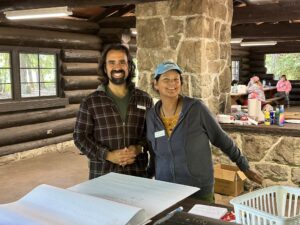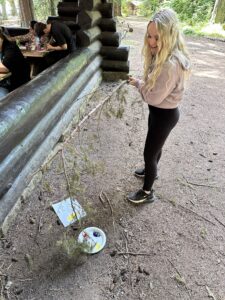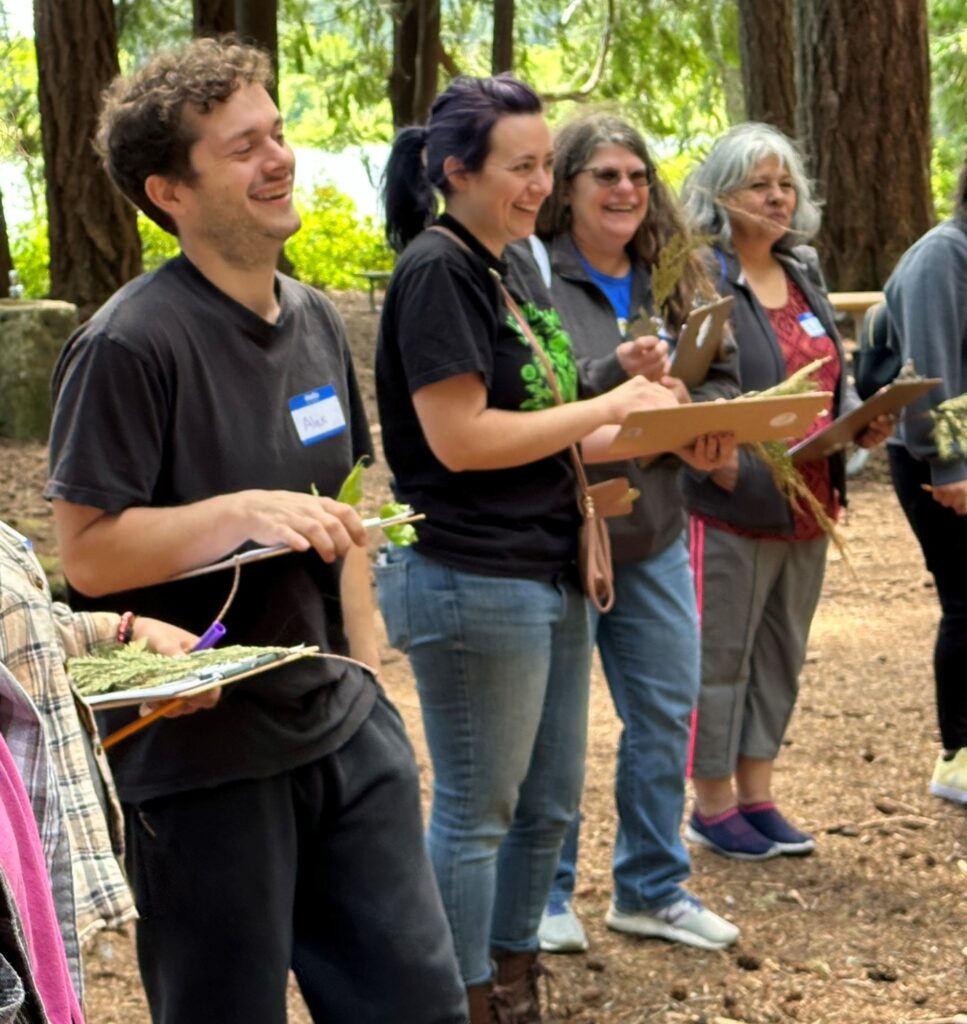Here’s a question you’ve probably never considered: can a pinecone be played like a harmonica?
The answer is not really, but it sure is fun trying, as one teacher at a Trees & Me: Early Childhood Outdoor Learning workshop discovered in May.
Over 40 educators and educators-in-training from Centralia College’s Early Childhood Education department attended the workshop at

Millersylvania State Park. They evaluated activities from Project Learning Tree’s Trees & Me: Activities for Exploring Nature with Young Children, collaborated with colleagues to identify and solve potential challenges with outdoor teaching, and participated in several of the guide’s activities.
Which is where the pinecone came in. PEI’s East Sound South FieldSTEM Coordinator Daniel Cuevas led an activity where participants created a musical ‘concert’ either by ‘playing’ objects found in nature or by replicating sounds they heard in their environment. The latter can vary significantly depending on where participants are based, according to Cuevas.
“The environment and your nature spot can sound like anything,” he says. “When we do this in Seattle, people make noises like cars. It gets teachers to immerse themselves in their environment no matter where they are and it’s interactive. The nature concert allows people to communicate in more than just one style, which is great for kids.”
“It was really neat to experience facilitating this workshop with the target audience of people who work with such young children. They had so much enthusiasm and so many ideas for how to put this information to use.”
— PEI’s Mid-Sound FieldSTEM Coordinator Daniel Cuevas
The Early Childhood Education program’s teachers work with children as young as 18 months old, making tools for nonverbal communication essential, says PEI’s South Sound FieldSTEM Coordinator and Washington State Project Learning Tree Coordinator Lara Tukarski, a former middle school teacher. “An experience outside can be tactile and kinesthetic,” she points out. “‘Play’ at this age means they are experimenting and problem solving. Moving and experiencing the world in these ways are both key to cognitive development.”
In another activity, facilitators told participants to go out and find something tree-related and bring it back to the group. Only when they had

returned did they learn that they would be using whatever they’d found – in one case, an eight-foot branch – to paint a picture on an index card. The results were entertaining, to say the least, and teachers were highly engaged. “They were so into that activity, they could have done it all day,” says Cuevas.
Many of the participants work with English Language Learners (ELL) students and were eager to learn about dual language resources. PEI’s Dual Language Program Coordinator Lourdes Flores shared books and other companion resources in Spanish that complement specific activities.
Overall, the experience was inspiring – for the facilitators! And, hopefully, the participants as well. “It was really neat to experience facilitating this workshop with the target audience of people who work with such young children,” says Cuevas. “They had so much enthusiasm and so many ideas for how to put this information to use.” Including, presumably, pinecones.
